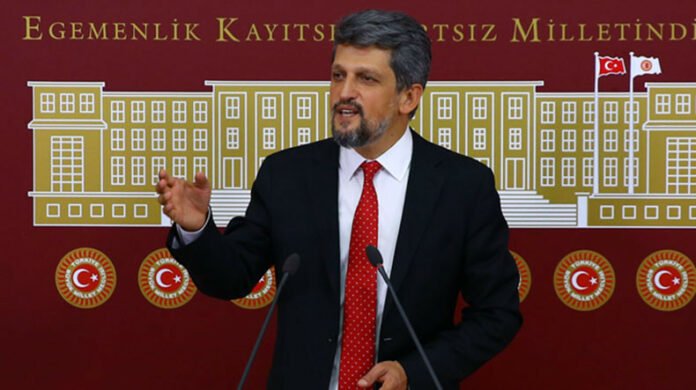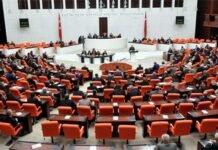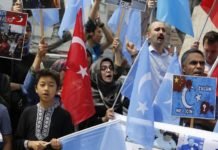An Armenian member of the Turkish Parliament from the pro-Kurdish Peoples’ Democratic Party (HDP) has said he has faced an unprecedented level of backlash due to a motion he submitted on Friday asking the legislature to declare the mass killings of Armenians over a century ago a genocide, Turkish Minute reported, citing the BBC Turkish edition.
“I have been submitting this motion for seven years and have never faced this kind of backlash. It was possible to talk about such issues in Turkey before, and this was the step I took for an issue about which the president issues a message of condolence every year,” said HDP lawmaker Garo Paylan.
Turkey categorically rejects the 1915-16 killings of more than a million Armenians as genocide.
In his motion Paylan asked parliament to recognize the massacre of Armenians at the hands of the Ottoman Empire as genocide and the removal of the names of the perpetrators of the genocide from public venues.
The motion was rejected by Parliament Speaker Mustafa Şentop on the grounds that it was against the parliamentary bylaws.
“It is not me who changed, but Turkey. Some steps were being taken to confront the past, but now it seems Turkey no longer has any interest in that confrontation. And it also no longer has any interest in an equal and fair future [for its citizens],” said Paylan.
Most of the criticism Paylan received came from ruling Justice and Development Party (AKP) politicians, with party spokesperson Ömer Çelik describing the motion as an “immoral proposal.”
Çelik called on Paylan on Twitter to apologize to the Turkish nation for “slandering” it by accusing the Turks of having perpetrated a genocide, adding that his party would take legal action against the Armenian lawmaker.
Justice Minister Bekir Bozdağ also slammed Paylan for submitting the motion and tweeted that the Turkish Parliament is not a venue where motions including slanders against the Turkish nation, their ancestors and the state are discussed.
Fahrettin Altun, the communications director of President Recep Tayyip Erdoğan, described Paylan’s submission of the motion as an act of “ignorance, perversion and even treason,” adding that Paylan will face legal action for his move.
“There is no black stain on our history,” he tweeted.
Opposition parties were also outraged by the motion.
Republican People’s Party (CHP) spokesperson Faik Öztrak, without mentioning Paylan’s name, said politicians should take care of their own business.
“Not politicians but historians decide what took place in history. The duty of politicians is not to trigger hostility among people based on history but to help build a better future,” tweeted Öztrak.
İYİ (Good) Party leader Meral Akşener said the Turkish nation has a history that one should be proud of and that “no dirty agenda” can change that fact.
As many as 1.5 million Armenians are estimated to have been killed from 1915 to 1917 during the waning days of the Ottoman Empire, which suspected the Christian minority of conspiring with adversary Russia in World War I.
Armenian populations were rounded up and deported into the desert of Syria on death marches in which many were shot, poisoned or fell victim to disease, according to accounts at the time by foreign diplomats.
Turkey, which emerged as a secular republic from the ashes of the Ottoman Empire, acknowledges that 300,000 Armenians may have died but strongly denies that it was genocide.
US President Joe Biden infuriated Ankara a year ago when he became the first sitting US president to describe the massacres as genocide. He had informed Turkish leader Erdoğan of the decision the day before, in a move seeking to limit anger from the NATO ally.
Erdoğan in the aftermath denounced the genocide recognition as “groundless” and “destructive” and warned Washington could lose a friend in a key region.
The strained relations gradually steadied, with the two leaders meeting last June and Erdogan hailing a “new era” of constructive ties with Washington.
Biden used the occasion of Armenian remembrance day on Sunday to describe past mass atrocities by Ottomans as genocide, repeating his controversial description from a year ago when he ended decades of American equivocation.















